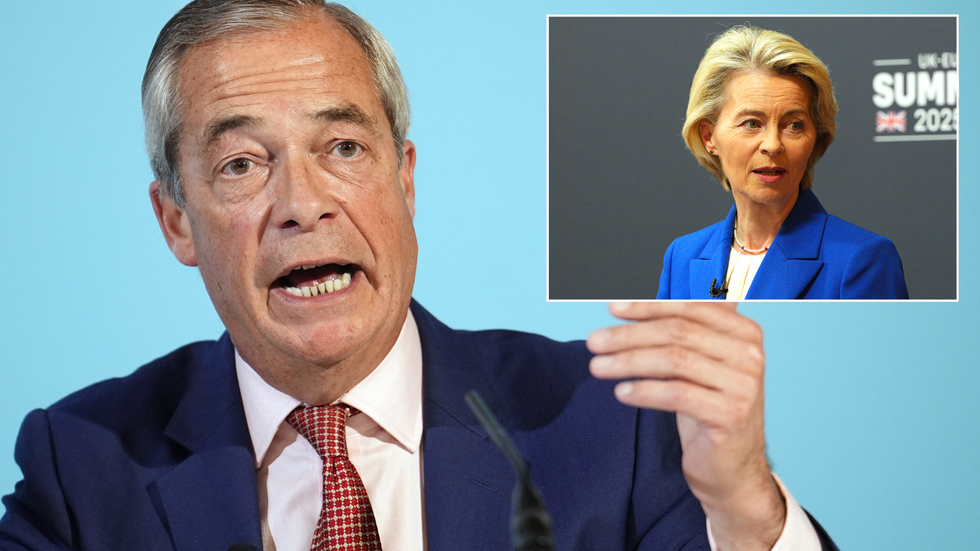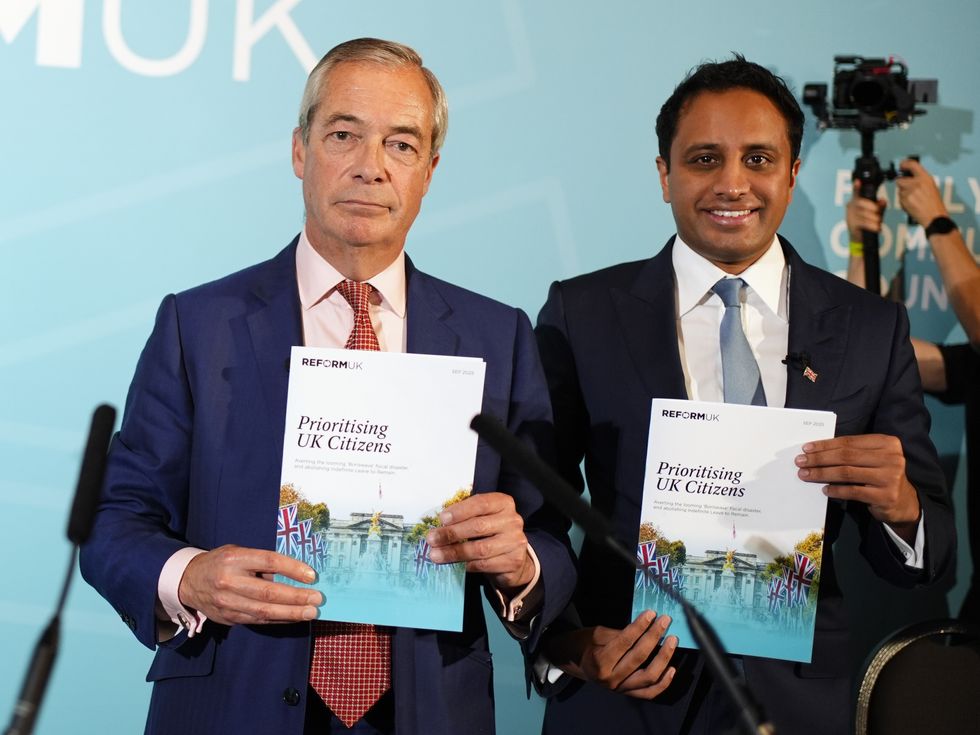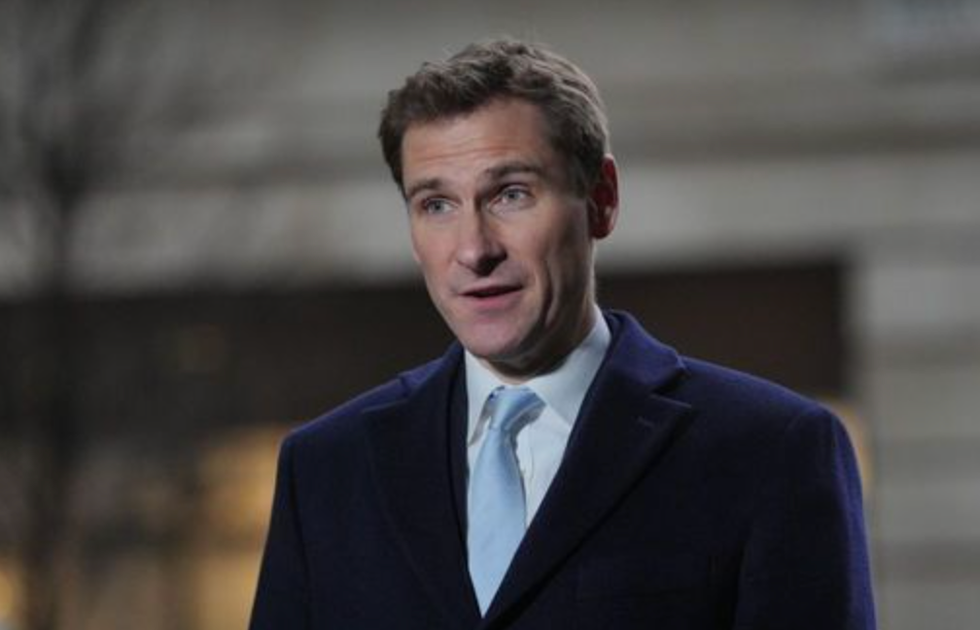Nigel Farage’s plan to save £234billion by banning non-UK citizens from claiming benefits is facing questions as it emerged there would be a carve-out for EU citizens with settled status.
The party has said it would axe the right of migrants to apply for indefinite leave to remain, ban anyone who is not a UK citizen from claiming benefits and force those applying for UK citizenship to renounce other citizenship.
But it has exempted EU citizens with settled status from its plans to ban migrant access to benefits and its policies on indefinite leave to remain (ILR).
Government sources have said there are 777,000 foreign Universal Credit claimants with this status.
Reform UK head of policy Zia Yusuf said yesterday the party would “open negotiations” with the EU on the welfare aspect of its plans.
But European sources have questioned why it would agree to the proposals which would “make EU nationals worse off than they are now”.
According to The Times, one European diplomat said: “It takes two to tango in a treaty negotiation, why would we agree to reopen this very sensitive Brexit legacy to make EU nationals worse off than they are now.
“It would not happen and if a UK government stripped people of their rights under the withdrawal treaty there would be huge consequences.
LATEST DEVELOPMENTS:
- White House scolds Keir Starmer for Palestine recognition in brutal slap-down to PM
- ‘Seismic’ boost for Reform UK as Nigel Farage’s party neck-and-neck to be biggest in Wales
- Migrant staying in asylum hotel ‘made violent threats before stabbing six people in knife rampage’

“It would breach all the undertakings made by Britain since the referendum and would crash relations.”
Reform cited a Centre for Policy Studies (CPS) report in claiming its plans could save around £234billion, despite the think tank having since said the figure, which had been a lifetime estimate, should no longer be used.
When pointed to the CPS statement, Mr Farage said: “The £230billion figure, as Zia (Yusuf, head of policy) has just said, that is without a doubt too low.
“It underestimates things, I suspect many more than 800,000 actually will apply for indefinite leave to remain, plus it’s quite tough to get all the figures.

“And if you go back to those who have already been granted indefinite leave to remain, without doubt the number is considerably bigger.”
Responding to Reform’s announcement, Rachel Reeves said: “The numbers that Reform have come out with overnight have already begun to disassemble.
“I want to bring down illegal migration. This Government is bringing down migration.
“We have sent a record number of people who have no right to be in our country home.”
She said: “It is a difficult challenge, I think everybody can see that, but simple gimmicks like those put forward by Reform that have no basis in reality and where the numbers just fall apart – that’s not the way to tackle a very serious issue, and this Labour Government are getting on and doing that.”
Conservative shadow home secretary Chris Philp accused Reform of copying Conservative ideas and called the policy “half-baked and unworkable”.
He said: “They lift our policies but strip away the detail that makes them enforceable. Mass low-skill migration carries real fiscal costs – in housing, welfare, and public services – which is why Britain needs a system that rewards contribution and stops abuse.”
Lib Dem leader Sir Ed Davey was asked if he thought the plans to axe indefinite leave to remain could spark another Windrush scandal.

He told GB News: “Yes. Nigel Farage has not clearly thought this through. He has not worked out the impact on red tape or on taxes.
“He has not realised that lots of these people have made their lives here, contributing to businesses, to the health service.”
Mr Farage wants to abolish indefinite leave to remain, for which migrants can currently apply after five years, and force them to renew their visa every five years.
Applicants would have to meet certain criteria, including a higher salary threshold and better standard of English.
Reform were not able to give a specific figure for a salary cap on Monday, but said it would do so down the line.
They would have to have lived in Britain for seven years, up from five, and there would be tighter restrictions on bringing spouses and children to the UK.
But by the time of the next election, many of those who arrived during what Mr Farage calls the “Boris wave” of migration would already have qualified for indefinite leave to remain, before Reform had got into government.
People can usually apply for UK citizenship 12 months after being granted ILR.
This means it is unclear how many will still have ILR by the time of the next election, as opposed to having been granted citizenship.
Mr Farage said the immigration figures under Mr Johnson, and Conservative governments since 2010, had “betrayed democracy”.
“Far too many that have come don’t work, have never worked and never will work,” he said.

“The ability to bring dependents of all kinds, and when you realise that most that come are very low-skilled, and on very low wages, you start to get a very, very different picture. In fact, you start to get a massive benefits bill.”
He added: “In particular, what we’re focusing on this morning is the ‘Boris wave’. The Boris wave, after his huge victory in 2019.
“And I think the millions that came in the years of his premiership, represents the greatest betrayal of democratic wishes certainly in anyone’s living memory.
“This is not what Brexit voters wanted, and it’s certainly not what any Conservative voter wanted from 2010 onwards.”
Our Standards:
The GB News Editorial Charter







Follow